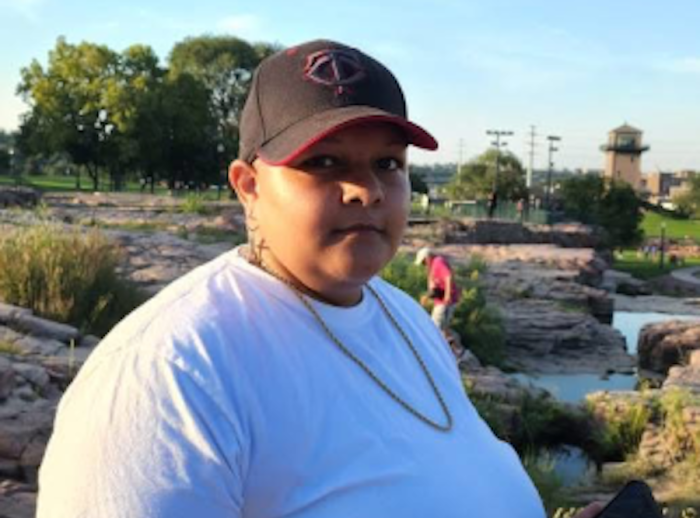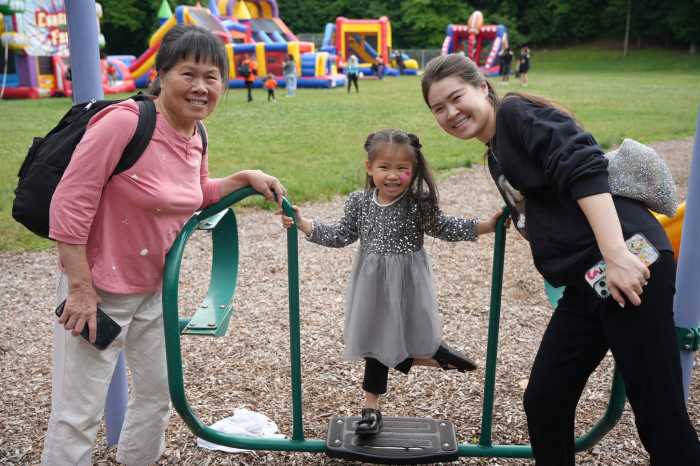Dharun Ravi, a 20-year-old former Rutgers University student, convicted on March 16 in connection with incidents in September 2010 in which he used a webcam on his dormitory room computer to spy on his gay roommate, Tyler Clementi, was sentenced to 30 days in jail, three years of probation, 300 hours of community service, counseling on “cyberbullying” and on “alternative lifestyles,” and a $10,00 fine.
The jail time, ordered in a sentencing hearing on May 21, was based on concurrent 30-day sentences for six of the 24 counts on which Ravi was convicted. He was found guilty of multiple counts of invasion of privacy, bias intimidation, witness and evidence tampering, and evasion of apprehension.
Judge Glenn Berman ordered that the sentence –– which will be served in jail, not state prison –– begin on May 31, but gave Ravi the statutorily mandated ten-day stay to file an appeal, which his attorney said they plan to do.
“I have no intention of granting a stay” beyond that period, Berman said, noting that he does not believe that “an appellate question that has to be addressed… exists.”
In a statement several hours after the sentencing, Middlesex County Prosecutor Bruce J. Kaplan said that while his office “did not request the maximum period of incarceration for Dharun Ravi, it was expected that his conviction on multiple offenses of invading the privacy of two victims on two separate occasions, four counts of bias intimidation against Tyler Clementi, and the coverup of those crimes, would warrant more than a 30-day jail term. The imposition of this term is insufficient under the sentencing laws of this state, the facts that were determined by a jury, and long-standing appellate precedent. Consequently, this office will appeal the sentence.”
Clementi, 18, was entertaining another man in their room at the time of the spying. Several days after the spying began, Clementi jumped to his death from the George Washington Bridge. A star violin player from Ridgewood, New Jersey, he was described, at the time of his suicide, as a shy young man who had only recently come out to his parents.
In his sentencing, Berman emphasized that Ravi was not convicted of contributing to Clementi’s death. He also said he would recommend that the defendant, an immigrant from India, not be deported, though he added that a final decision on that was not his, but rather to be made by federal immigration authorities.
Berman was otherwise scathing in his comments about the defendant.
“I haven’t heard you apologize once,” he said. While the pre-sentencing letter prepared by Ravi’s attorney offered an apology to Clementi’s family, the judge said, it did not mention M.B., the 32-year-old man who was also caught on video as he spent intimate time with Clementi. It was a letter from M.B. urging that Ravi not be deported that led the judge to make his recommendation on that question.
Berman noted that Ravi’s pre-sentencing letter also failed to acknowledge the seven charges related to his cover-up for which he was convicted.
Stating that the witness best able to describe Ravi’s behavior was dead, the judge pointed out that Clementi had called the defendant’s behavior “wildly inappropriate.” Berman did not allow the jury to hear those words, but said he could not put them out of his own mind in coming to a decision on sentencing.
The judge focused a good deal of attention on the steps Ravi took to evade law enforcement, describing that effort as “anything but isolated and spontaneous… This was a cold, calculated, and methodically conceived” plan.
Berman said Ravi had not “contemplated” that his conduct would lead to serious harm but had nonetheless acted with “colossal insensitivity.” Berman stated that the defendant was convicted not of a “hate crime,” but rather a “bias crime.”
He said, in deciding on Ravi’s sentence, that his goal was to achieve a response that was “measured… balanced, and if possible constructive,” and would “if possible, provide a measure of closure,” even though he acknowledged that would be difficult for the Clementi family.
The indictment against Ravi charged that the videotaping and live-streaming of Clementi and the other man’s private conduct by Ravi, a Plainsboro, New Jersey, resident, “intended to intimidate [them] because of their sexual orientation.” The defendant, the indictment continued, had “disclosed a photograph, film, videotape, recording, or other reproduction of the image of T.C. and/ or M.B. whose intimate parts were exposed or who were engaged in an act of sexual penetration or sexual contact without the consent of T.C. and/ or M.B.”
During the trial, there was testimony that the videotaping captured images of Clementi kissing another man, now 32, identified only as M.B. Prosecutors introduced evidence that on 38 occasions in the days before his suicide, Clementi went online to look at a Ravi tweet saying he’d viewed his roommate “making out with a dude.”
New Jersey law defines invasion of privacy as a sexual offense.
The prosecutor also charged that Ravi deleted a Twitter post alerting others to a September 21 encounter between the two gay men, replacing it “with a false post on Twitter intended to mislead the investigation.” Evidence was presented showing that the defendant provided false information to investigators and attempted to persuade witnesses not to testify against him.
Molly Wei, also a former Rutgers student who admitted to having joined Ravi in viewing Clementi and M.B. remotely via the webcam stream, struck a plea deal last year in which she agreed to testify against Ravi, perform community service, and complete a cyber-bullying education program.
Steven Goldstein, the chair of Garden State Equality, New Jersey’s LGBT rights group, which consistently pressed for a strong law enforcement response to Ravi’s crimes, expressed disappointment with the sentence.
In a written statement, Goldstein said, “We have spoken out against giving him the maximum sentence of 10 years in jail and against deporting him… But we have similarly rejected the other extreme that Ravi should have gotten no jail time at all, and today’s sentencing is closer to that extreme than the other. This was not merely a childhood prank gone awry. This was not a crime without bias.”
In a written statement, Christine Quinn, the out lesbian speaker of the New York City Council, said, “After the jury in the Tyler Clementi bullying case showed such courage, the system of justice has failed. Dharun Ravi’s bullying contributed to Tyler’s death. Yet, Mr. Ravi has shown no remorse and accepted no responsibility in the case. Still, the court sentenced him to only 30 days in jail. This is an outrageous slap in the face to all who believe in equal justice for all. I support the prosecution as they go forward and appeal this ruling. “
Since the time the criminal case against Ravi emerged, however, a number of prominent gay figures –– including blogger Andrew Sullivan and author and sex columnist Dan Savage, who initiated the “It Gets Better” video campaign just one day before Clementi’s suicide –– spoke out against what they described as a “mob mentality” and a “witch-hunt.” In the wake of the sentencing, however, Savage tweeted that 30 days in jail was “far, far too lenient.”































